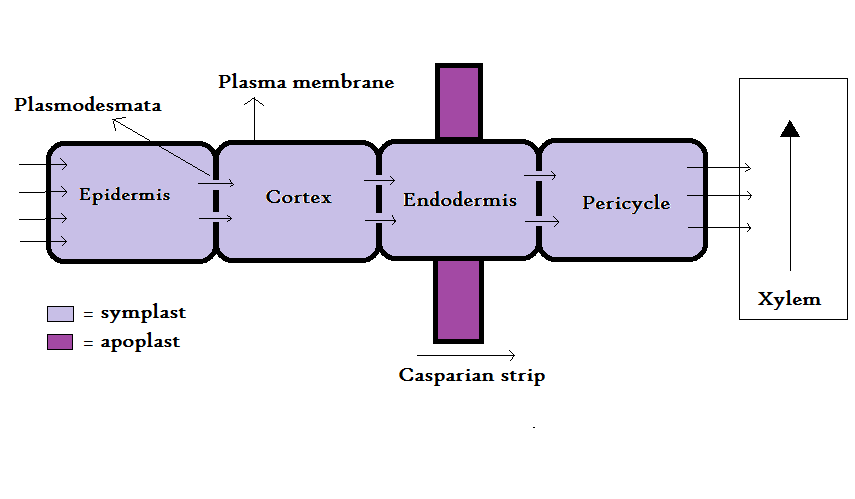IMMUNE SYSTEM DISORDER
Improper functioning of immune system can cause comfort, disease or even death. These disorders may involve:
 |
| Figure 1 |
1. Hypersensitivity or Allergy: Allergy means inappropriate and excessive response to common antigens. Substances causing allergic reaction are called allergens. The common allergens are dust, pollens, mould, spores, fabrics, feathers, fur, plants, bacteria, foods, heat, cold, sunlight. Parthenium flower is a common allergen in India.
Allergy mostly affects the skin and the mucous membrane. Hay fever affects the mucous membranes of the nose, eyes and upper respiratory tracts. In asthma, the lower portions of the respiratory system are severely affected. In eczema, the skin becomes red, followed by the appearance of minute blisters.
During allergic reaction there is increased release of histamine from mast cells. It causes marked dilation of all the peripheral blood vessels and the capillaries become highly permeable so that large amounts of fluid leak out from the blood into the tissues. The blood pressure decreases drastically often resulting in the death of the individual within a short time. Spleen is called the shock organ of allergy.
The exact nature of the substance of which a person is hypersensitive must be known before he can be properly treated. Some forms of allergy are mentioned below:
 |
| Figure 2 |
 |
| Figure 3 |
b) Asthma: It is the sudden spasm of tissue surrounding respiratory tract causing narrowing of respiratory tract. The tissue surrounding the respiratory tubes in the lungs swell up and compress the tubes. Hence there is difficulty in breathing.
c) Anaphylactic shock: It is an allergic reaction involving all the tissues of the body and occurs in a few minutes after the injection of an antigen such as penicillin. Such a reaction is very serious. Histamines released from ruptured from mast cells causes marked dilation of all the arteries so that a large amount of fluid is passed from the blood to the tissues and there is a drastic fall in blood pressure. The affected person may become unconscious and the individual may die within a short time.
2. Autoimmunity: Antibodies are produced against antigens but sometimes it may also happen that the immune system of the body goes off the track and starts behaving against the 'own body' or 'self'. This leads to a variety of diseases known as autoimmune diseases. This type of diseases depends on which type of 'self-antigens' is involved. The nature of autoimmune diseases depends on the autoantigens involved. For example, if the autoantigens are produced against acetylcholine receptors (Myasthenia gravis); if the autoantigens are liver cells, then it results in chronic hepatitis, etc. Other autoimmune diseases are insulin-dependent diabetes, Addison's disease, ulcerative colitis and rheumatoid arthritis.
3. Immuno deficiencies
a) Sever combined immuno deficiency (SCID): Sometimes new born children are without T-cells and B-cells. These children are highly susceptible to various infections. The most serious disorder of this type is a congenital disease known as severe combined immuno deficiency (SCID) in which both B-cells and T-cells are not present in the body. Such children are highly susceptible even to minor infections. In developed countries like U.S.A. such children are kept alive by keeping them in germ-free environments called isolation suits.
 |
| Figure 4 |
4. Graft rejection: Grafts of a kidney, heart, lung, liver, etc. from one human to another always (unless donated by an identical twin) are seen by the recipient's immune system as antigenic and elicit an immune response. If unchecked, this response will eventually lead to destruction of the graft. Both CD4+ CD8+ T cells participate in graft rejection. They responding to differences between donor and host of their class II and class I histocompatibility molecule.
5. Graft-versus-host disease: Grafts of bone marrow are used to provide, or restore, a source of blood cells of the recipient.
 |
| Figure 5 |
 |
| Figure 6 |
If there is any histocompatibility differences between donor and recipient (and there always are some, unless the patientown marrow is used or that of an identical twin), then the cells of the donor will mount an immune response against the tissues of the recipient. Fortunately, graft-versus-host disease can usually be controlled with immunosuppressive drugs.
Please watch other blogs too... And, must share!!!



Comments
Post a Comment